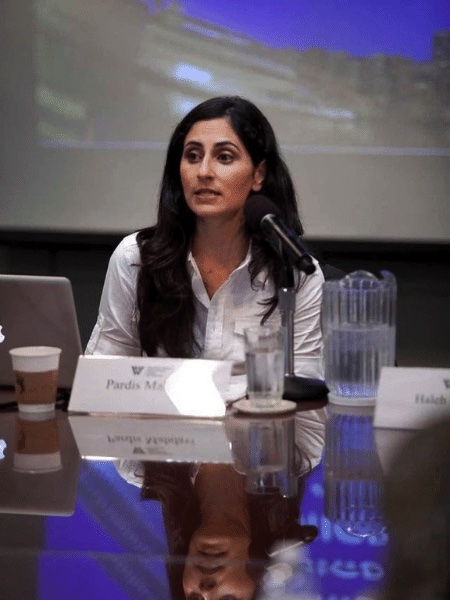Pardis Mahdavi, PhD is the incoming Provost and Executive Vice President at the University of Montana. She is also currently the Dean of Social Sciences and Director of the School of Social Transformation at Arizona State University. Prior to joining ASU, Mahdavi was Acting Dean of the Josef Korbel School of International Studies at the University of Denver. Previously she was an associate professor and chair of anthropology, director of the Pacific Basin Institute, and dean of women at Pomona College. Her research interests include gendered labor, human trafficking, migration, sexuality, human rights, transnational feminism and public health in the context of changing global and political structures. She has published five books and edited one volume, in addition to numerous journal and news articles. Her first book, Passionate Uprisings: Iran’s Sexual Revolution was published with Stanford University Press in 2008, and her second book, Gridlock: Labor, Migration and Human Trafficking in Dubai, also Stanford University Press, was published in 2011. Mahdavi’s third book, entitled From Trafficking to Terror: Constructing a Global Social Problem was published by Routledge on October 1, 2013, and her fourth book, Crossing the Gulf: Love and Family in Migrant Lives also Stanford University Press was published in April 2016. Her most recent book, Hyphen, was published by Bloomsbury Press in June of 2021.
She has been a fellow at the Social Sciences Research Council, the American Council on Learned Societies, Google Ideas, the Woodrow Wilson International Center for Scholars, the National Drug Research Institute, the American Public Health Association, and the Society for Applied Anthropology. Pardis was chosen as a Young Global Leader by the Asia Society and has consulted for a wide array of organizations including the U.S. government, Google Inc., and the United Nations. In 2012, she won the Wig Award for teaching at Pomona College. In 2018, she was appointed by Colorado Governor John Hickenlooper and re-appointed by Governor Jared Polis to serve on the Colorado Commission on Higher Education.















